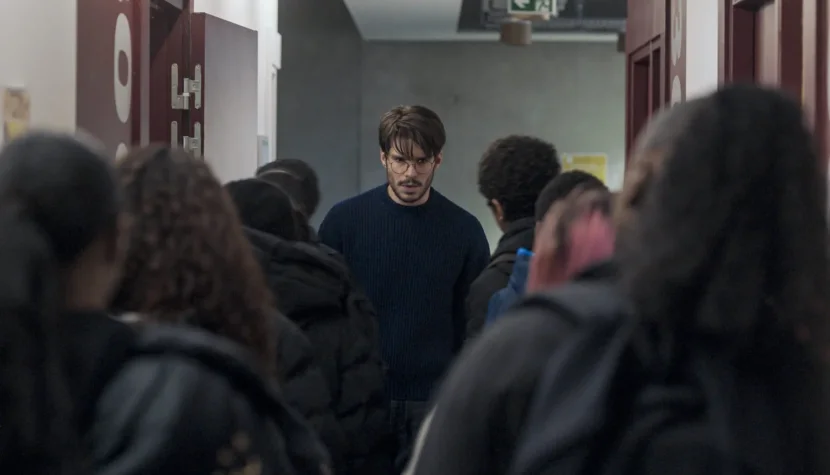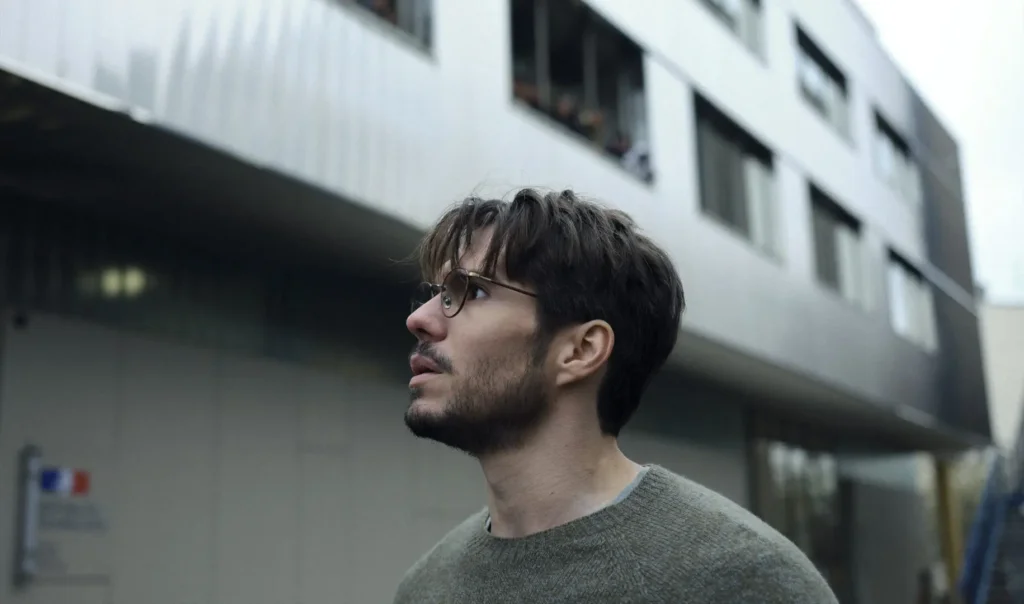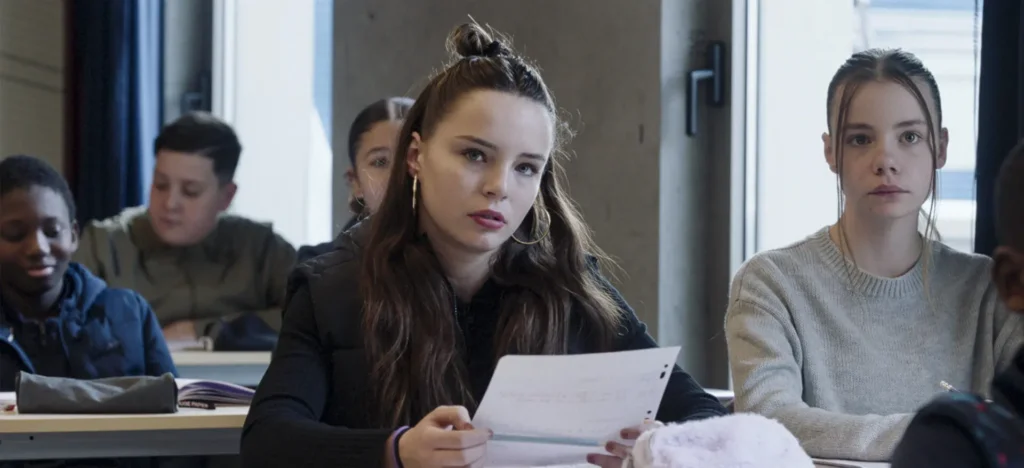THE GOOD TEACHER. Hounded [REVIEW]

Similar to the Scandinavian films The Guests (2022) or The Hunt (2012) with Mads Mikkelsen, The Good Teacher poses a provocative question: Can good upbringing be harmful, and does the penalization of all forms of aggression in society unintentionally lead to their inevitable escalation?
Julien discusses a poem by Ronsard with his class. Like much of this poet’s work, it has strong erotic undertones, and a group of twelve-year-olds quickly start making vulgar remarks. These are kids growing up with the internet—nothing shocks them. Trying to find a common language with his students and to spark their interest in poetry, Julien uses an example of verbal seduction and directs a compliment toward one of the girls. The situation quickly spirals out of control. The girl reports the incident to a school staff member as harassment. As it turns out, her friends actually urged her to do so, seeking revenge on Julien, who had upset them earlier. They also turn the rest of the class against him. The girl’s older brother starts showing up outside the school, threatening the teacher. Once society labels someone as a “pedophile,” it no longer matters that Julien is gay and lives in a happy relationship.

The great strength of The Good Teacher lies in its subtlety and ambiguity. Julien is innocent, but not entirely blameless: he is a young teacher still learning his craft and making mistakes. The problem is that the school environment does not forgive such errors. The film’s delicate psychological portraits and convincing depiction of the mechanics of exclusion and lynching create an educational drama that at times feels like a thriller. The filmmakers aren’t afraid to criticize the modern school system, where teachers have fewer rights and defense options, making it increasingly difficult for them to earn their students’ respect. A teacher must always turn the other cheek, because while a student might only get sent to a counselor for insulting them, the teacher could lose their job—a risk Julien cannot afford, given the financial troubles he and his partner face. Julien’s situation is further complicated by the fact that, as a cultured and calm man, he doesn’t fit into the environment from which his students come, making him an easy target as an outsider.
According to the filmmakers, the screenplay was inspired by a true story, which is easy to believe. Director Teddy Lussi-Modeste, previously better known as a screenwriter (including for Jeanne du Barry), proves with The Good Teacher that he knows how to create a powerful, daring drama with social insight. French actor François Duvall, who plays Julien and may be familiar from his role as D’Artagnan in the new adaptation of The Three Musketeers, convincingly portrays an ordinary man who struggles in a threatening situation and is helpless against the onslaught of a lynch mob—even if he’s arguably too handsome to be a typical everyman or a struggling teacher, a bit of aesthetic license that’s easy to overlook in cinema.

This is a story about the paradoxes of modern life. Julien wants to connect with his students, to be less conventional, and to inspire them—but he can’t achieve this, as even taking the students out for kebabs is seen by the staff as crossing a line. After the scandal breaks, even the fact that Julien discussed love poetry with his students becomes problematic—despite the same students already watching pornography. The filmmakers skillfully weave together many current issues, with excessive correctness being the common thread. Censorship of art and thought, caution and distrust in interpersonal interactions, politeness and courtesy that prevent self-defense, and laws that pursue the slightest act of insubordination—all these challenges prevent Julien from becoming a Keating and forming a genuine, authentic relationship with his students.
It’s also a very intriguing film about education. The world of a teenager, or more broadly, a child, remains a mystery to educators. The Good Teacher does an excellent job of portraying this developmental stage, where on the one hand, the individual is still a child with a brain that is not fully developed, and on the other hand, is already capable of conscious manipulation, cruelty, and other behaviors with serious consequences. Working with youth is like navigating a minefield: one wrong step, and Julien loses all the trust he had built. As viewers, we won’t get answers to all our questions. The students themselves likely don’t yet understand their own behavior and motivations.
What awaits Julien? Will he fulfill his dream of becoming an important teacher to a child, or will he give up after lashing out at the one student in the class who he might have been able to mentor? There are many similar stories of burnout and disillusionment among teachers, and there seems to be no hope for improving the system.

